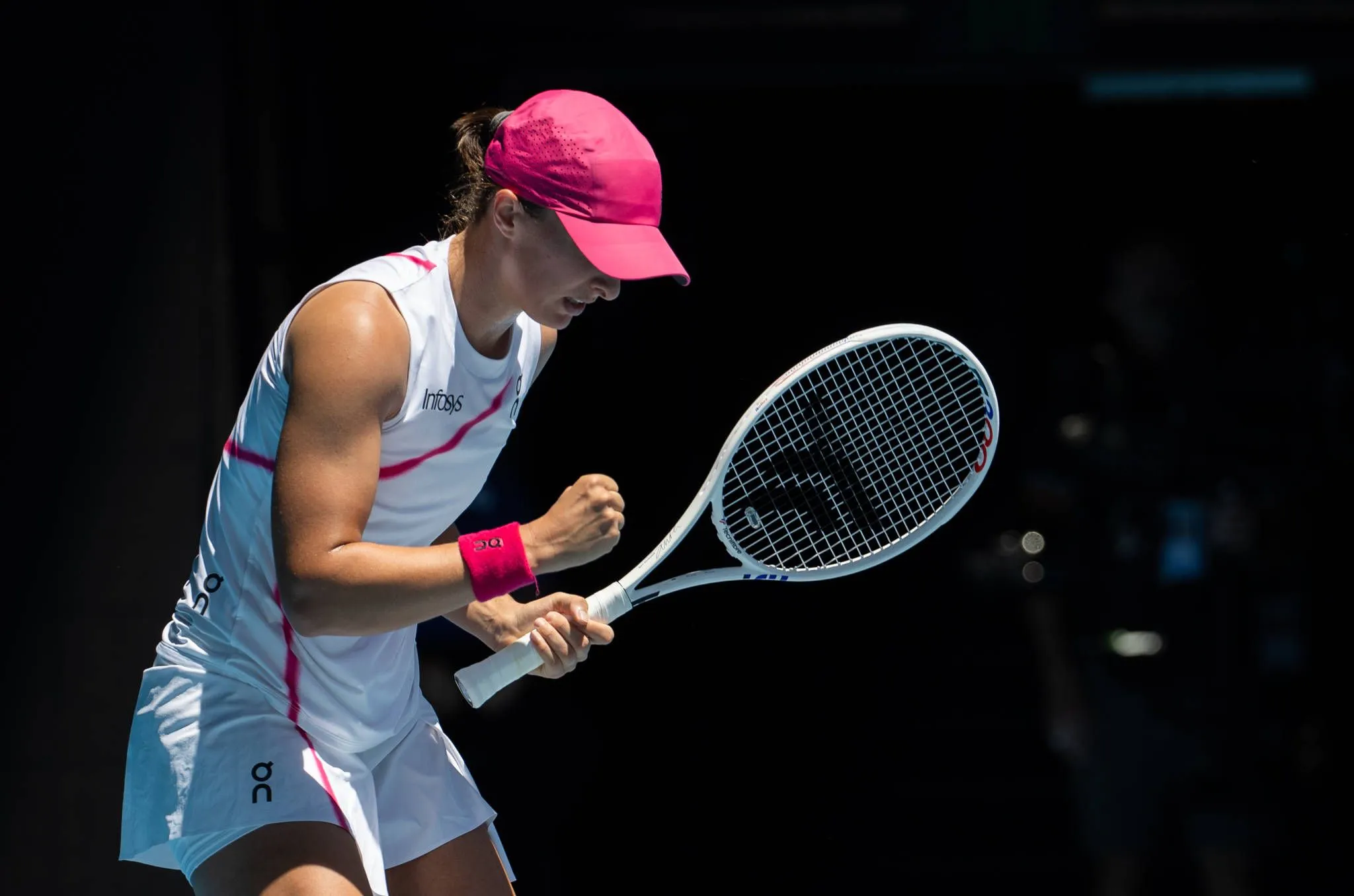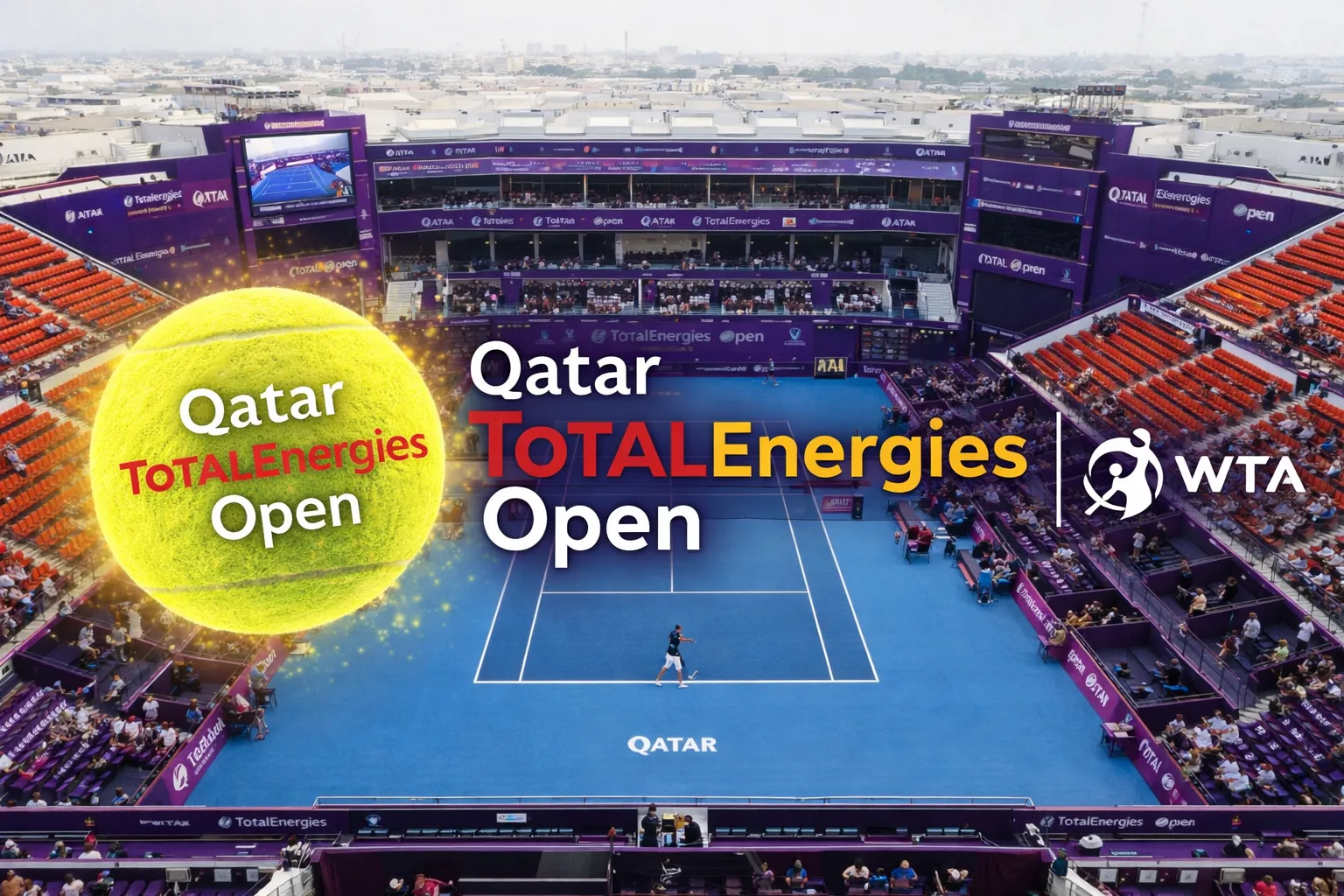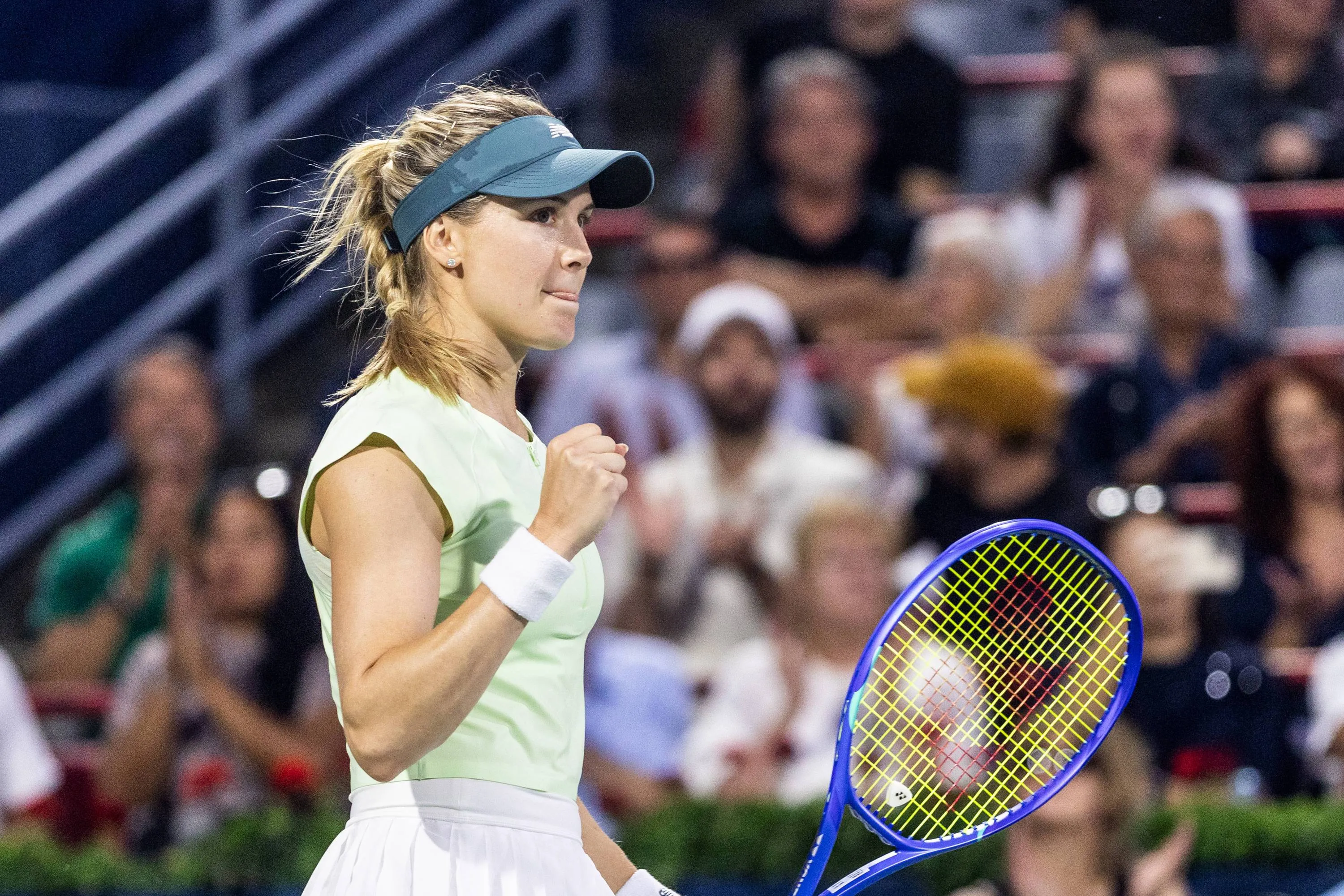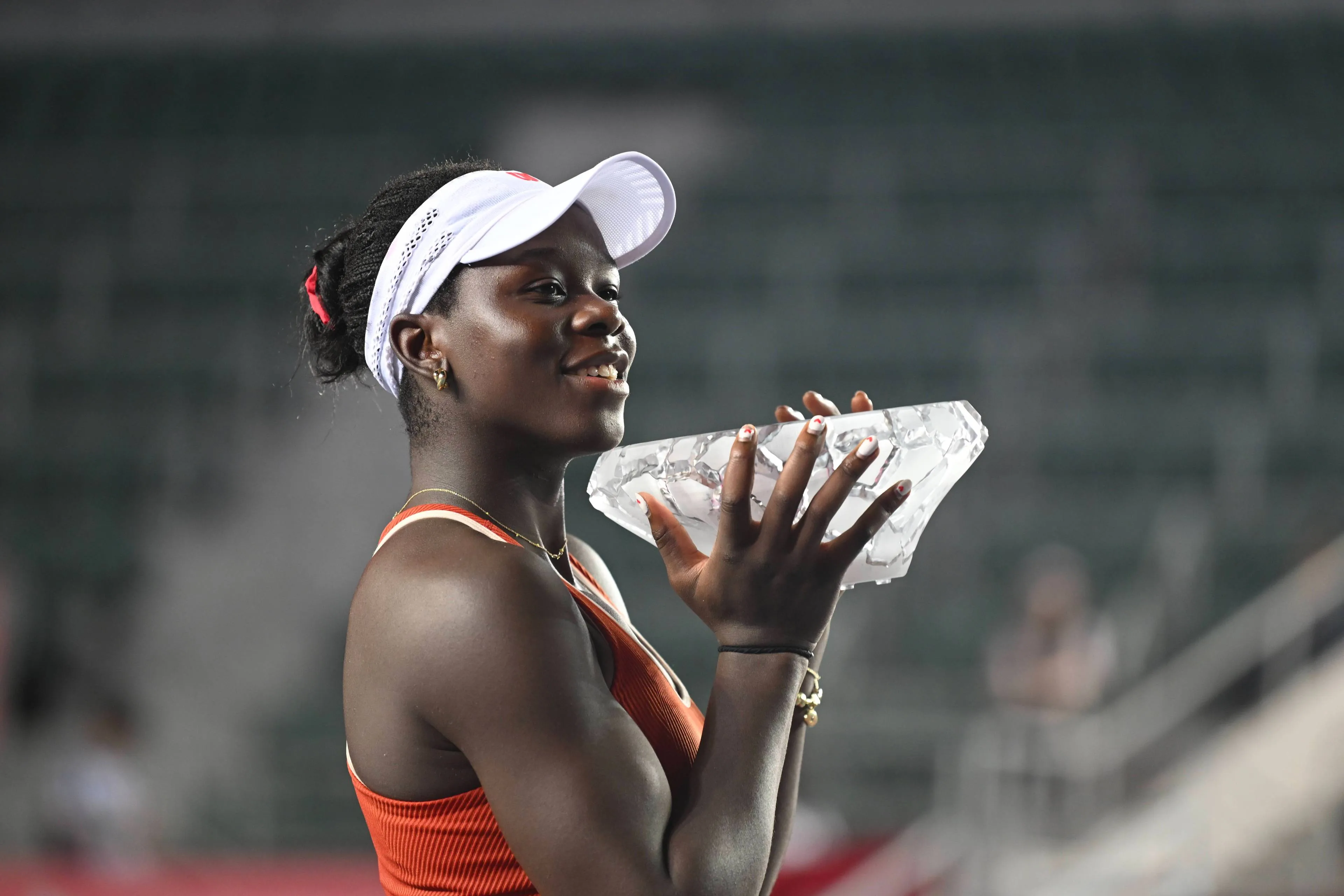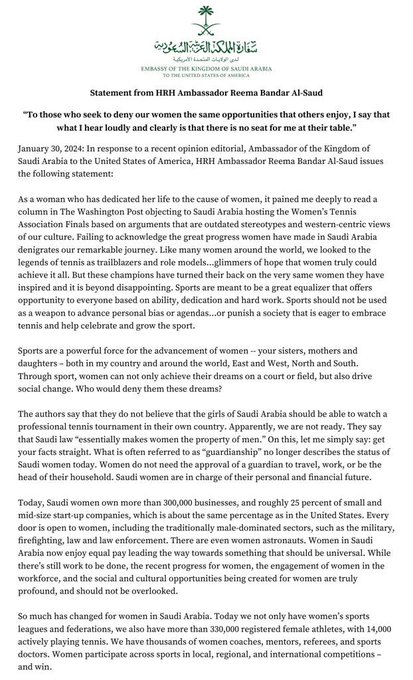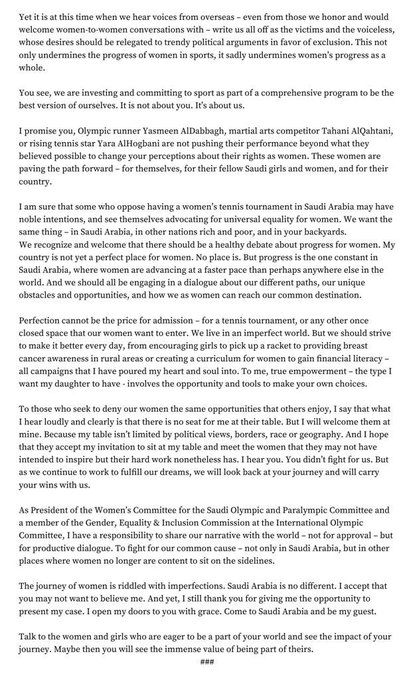Saudi Arabia Ambassador to the US tells Chris Evert and Martina Navratilova to 'get their facts straight' amid WTA Finals Saudi bid criticism
WTATuesday, 30 January 2024 at 13:00
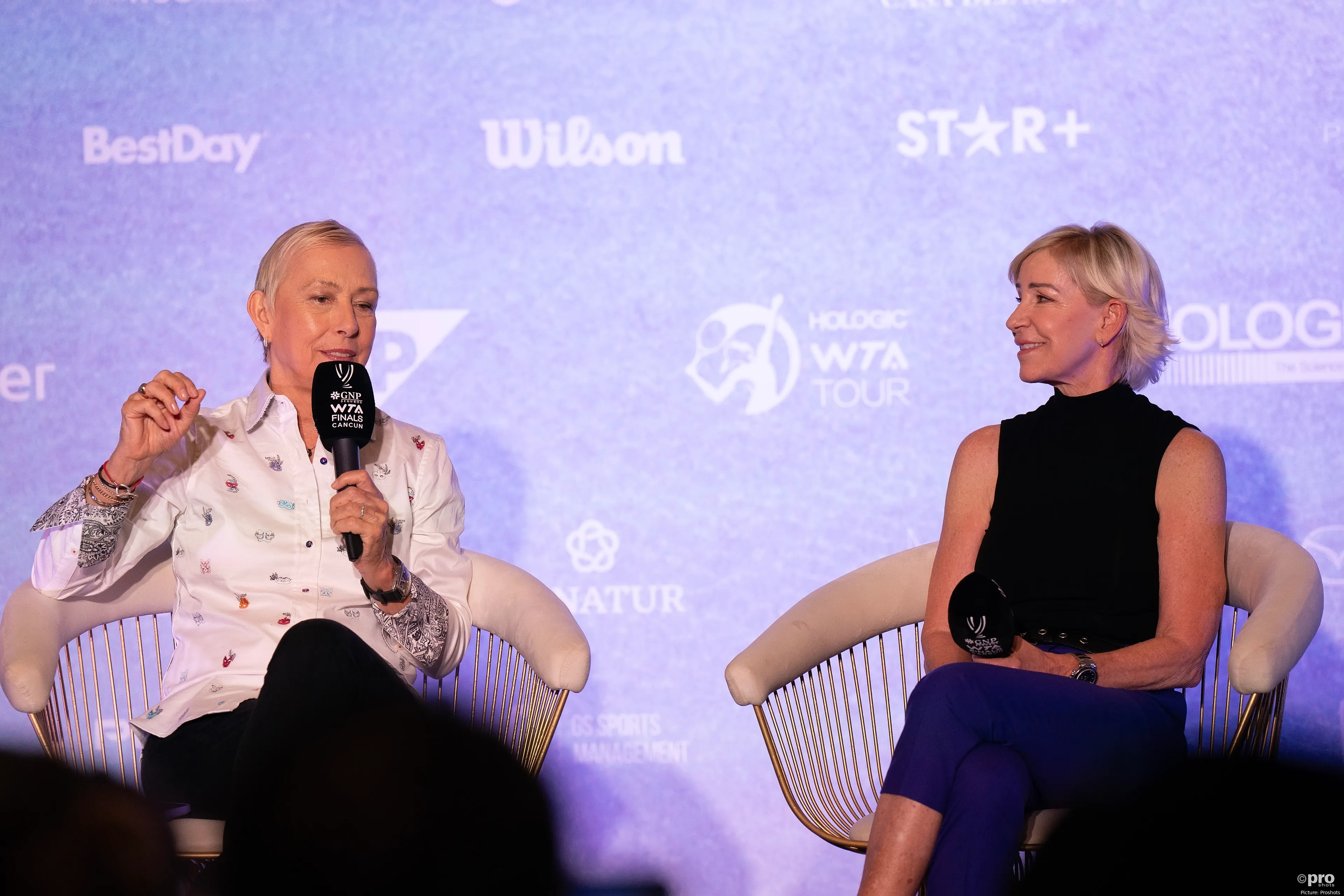
Saudi Arabia's ambassador to the US, Princess Reema Bandar Al Saud has responded to the recent opinion piece in the Washington Post of Chris Evert and Martina Navratilova who have also done further pieces elsewhere telling the powers that be to reconsider the WTA Finals being moved to the kingdom.
Princess Reema believes that the stance is based on 'outdated stereotypes' and that Evert and Navratilova should 'get their facts straight'. The column opposed the proposal claiming that the partnership would be 'entirely incompatible with the spirit and purpose of women’s tennis' and that 'staging the WTA final there would represent not progress, but significant regression'.
Read also
"As a woman who has dedicated her life to the cause of women, it pained me deeply to read a column in The Washington Post objecting to Saudi Arabia hosting the Women's Tennis Association Finals based on arguments that are outdated stereotypes and western-centric views of our culture," read the statement on social media.
"Failing to acknowledge the great progress women have made in Saudi Arabia denigrates our remarkable journey. Like many women around the world, we looked to the legends of tennis as trailblazers and role models ... glimmers of hope that women truly could achieve it all. But these champions have turned their back on the very same women they have inspired and it's beyond disappointing."
"Failing to acknowledge the great progress women have made in Saudi Arabia denigrates our remarkable journey. Like many women around the world, we looked to the legends of tennis as trailblazers and role models ... glimmers of hope that women truly could achieve it all. But these champions have turned their back on the very same women they have inspired and it's beyond disappointing."
Evert and Navratilova told to get 'their facts straight' surrounding women's rights in Saudi Arabia
A lot of the attention surrounding their viewpoint is women's rights in Saudi Arabia as well as LGBTQ+ which is an issue that has seen the likes of Iga Swiatek uneasy on the potential move. "On this, let me simply say: get your facts straight. What is often referred to as 'guardianship' no longer describes the status of Saudi women today," she continued.
"Women do not need the approval of a guardian to travel, work, or be the head of their household. Today, Saudi women own more than 300,000 businesses and roughly 25 per cent of small and mid-sized start-up companies, which is about the same percentage as the United States. Women in Saudi now enjoy equal pay, leading the way towards something that should be universal.
"While there's still work to be done, the recent progress for women, the engagement of women in the workplace, and the social and cultural opportunities being created for women are truly profound and should not be overlooked."
"Today we not only have women's sports leagues and federations, we also have more than 330,000 registered female athletes, with 14,000 actively playing tennis," she continued on further points surrounding women. "We have thousands of women coaches, mentors, referees, and sport doctors. Women participate across sports in local, regional, and international competitions – and win.
"Yet it is at this time when we hear voices from overseas – even from those we honour and would welcome women-to-women conversations with – write us all off as victims and the voiceless, whose desires should be relegated to trendy political arguments in favour of exclusion. This not only undermines the progress of women in sport, it sadly undermines women's progress as a whole."
"To those who seek to deny our women the same opportunities that others enjoy, I say that what I hear loudly and clearly is that there is no seat for me at their table. But I will welcome them at mine," she wrote. "Because my table is not limited by political views, borders, race or geography.
"And I hope they accept my invitation to sit at my table and meet the women that they may not have intended to inspire but their hard work nonetheless has. I hear you. You didn't fight for us. But as we work to continue to fulfil our dreams, we will look back at your journey and carry your wins with us.
"As President of the Women's Committee for the Saudi Olympic and Paralympic Committee and a member of the Gender, Equality & Inclusions Commission at the International Olympic Committee, I have a responsibility to share our narrative with the world – not for approval – but for productive dialogue. To fight for our common cause – not only in Saudi Arabia, but in other places where women are no longer content to sit on the sidelines."
"Women do not need the approval of a guardian to travel, work, or be the head of their household. Today, Saudi women own more than 300,000 businesses and roughly 25 per cent of small and mid-sized start-up companies, which is about the same percentage as the United States. Women in Saudi now enjoy equal pay, leading the way towards something that should be universal.
"While there's still work to be done, the recent progress for women, the engagement of women in the workplace, and the social and cultural opportunities being created for women are truly profound and should not be overlooked."
"Today we not only have women's sports leagues and federations, we also have more than 330,000 registered female athletes, with 14,000 actively playing tennis," she continued on further points surrounding women. "We have thousands of women coaches, mentors, referees, and sport doctors. Women participate across sports in local, regional, and international competitions – and win.
"Yet it is at this time when we hear voices from overseas – even from those we honour and would welcome women-to-women conversations with – write us all off as victims and the voiceless, whose desires should be relegated to trendy political arguments in favour of exclusion. This not only undermines the progress of women in sport, it sadly undermines women's progress as a whole."
"To those who seek to deny our women the same opportunities that others enjoy, I say that what I hear loudly and clearly is that there is no seat for me at their table. But I will welcome them at mine," she wrote. "Because my table is not limited by political views, borders, race or geography.
"And I hope they accept my invitation to sit at my table and meet the women that they may not have intended to inspire but their hard work nonetheless has. I hear you. You didn't fight for us. But as we work to continue to fulfil our dreams, we will look back at your journey and carry your wins with us.
"As President of the Women's Committee for the Saudi Olympic and Paralympic Committee and a member of the Gender, Equality & Inclusions Commission at the International Olympic Committee, I have a responsibility to share our narrative with the world – not for approval – but for productive dialogue. To fight for our common cause – not only in Saudi Arabia, but in other places where women are no longer content to sit on the sidelines."
Read also
claps 0visitors 0
Just In
Popular News
Latest Comments
- LOL. Billie Jean King hates being a woman.
- Pulling out a tournament is not illegal. Therefore, that is no problem. Maybe they need more rest.
- It is simple. If you do not want cameras following you, get away from tennis and go find another job. Cameras and interviews are a part of the job. They do not mind cameras when they are winning. If the women tennis players would put the same amount energy to playing tennis as they do with complaints, women tennis would be exciting to watch.
- Yeah, that's what I would do... be nice and lose a match
- Turns out Swiatek is as big a cheater as Draper (remember vs FAA?)when she didn’t admit to hitting a double bounce drop shot. The blind chair ump didn't even see it on the replay but fortunately got the correct call from someone on the phone (supervisor?) we all saw it…..it wasn’t even a close call. Great win Sakkari !!
- The women could barely play the best 2 out of 3 sets. Yet, they are always complaining about equal prize money. Equal pay means Equal work.
- What a dump!!
- Someone tell those two bored, jobless people that PRO-TENNIS IS NOT YOUR PERSONAL F'ING TOY !!!
- Hopefully, she does not come back.
- Sure she sees her tennis as a job now, thanks to her groomer
Loading

